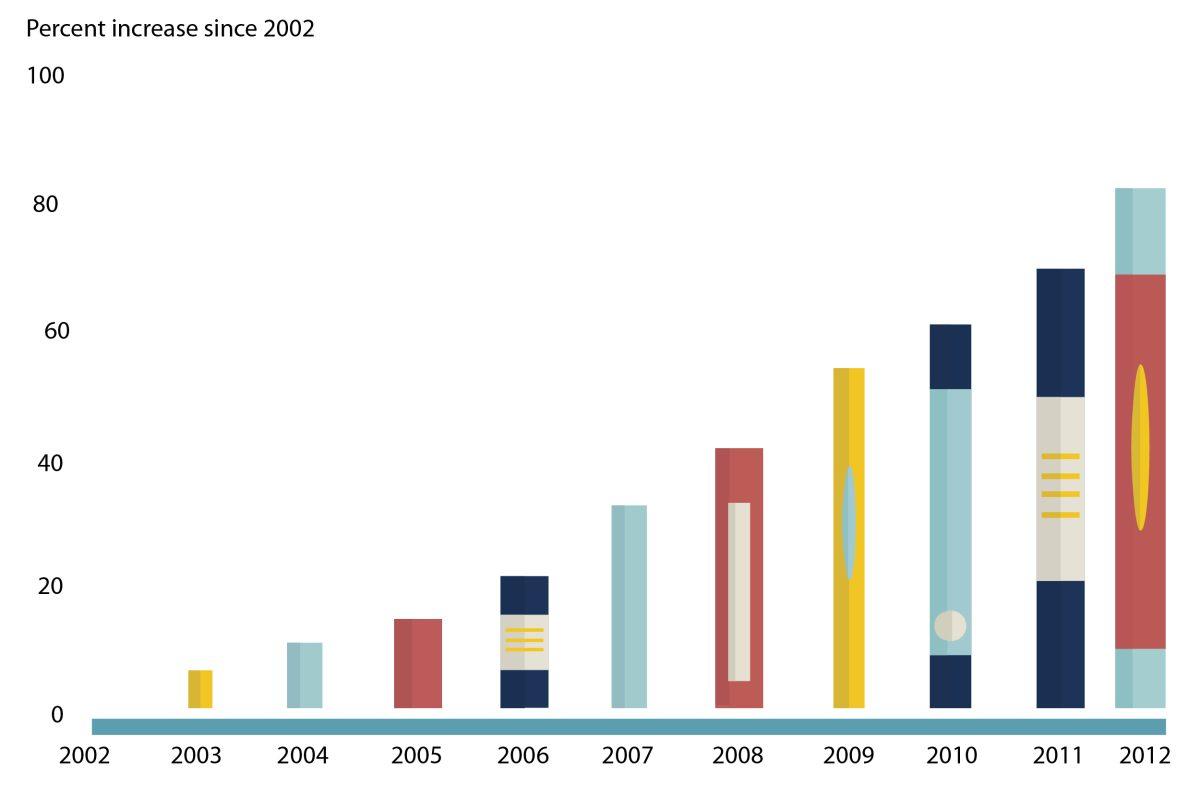The Affordable College Textbook Act addresses problems students have with rising textbook costs year after year and, if passed, will provide grant money to colleges who create or expand open textbook programs. An open textbook is a textbook that can be accessed by the public for free and is legal to download, print and redistribute. Colleges in the program can be of any size, from community colleges to universities, but every college that receives funds would be required to submit a report on how effectively the program saved students’ money.
Senators Dick Durbin (D-IL), Al Franken (D-MN) and Angus King (I-ME) and Representatives Rubén Hinojosa (D-TX) and Jared Polis (D-CO) introduced the bill to Congress Oct. 8.
“College would be a lot easier if I had access to textbooks, something I don’t have because they’re too expensive for a student paying for college on her own,” said Kate Williams, a sophomore studying life sciences. “I’m already paying thousands for tuition. I don’t have the resources to pay hundreds more for books and access to online homework and honestly shouldn’t have to.”
Currently, the average student’s budget for books is about $1,200 annually due to the rapid inflation of textbook prices. In 10 years, between 2002 and 2012, college textbook prices rose 82 percent, according to the U.S Government Accountability Office. According to University of Michigan economics professor Mark J. Perry, the costs of textbooks have risen 812 percent since 1978.
“The reality is that our college students are taking on more debt than ever while also working more and more hours to stay afloat,” said Franken in the official press release about the bill. “By expanding access to free online textbooks, our bill would help address this problem and allow students and families to keep more of their hard-earned money.”
According to the Scholarly Publishing and Academic Resources Coalition, one of the main supporters of the act, the use of open textbooks reduces the average cost of course material for a student by 80 percent and can reduce the cost of course material entirely. On its website, SPARC supplies a list of other Open Educational Resources, or OERs, including lesson plans, tests, software, videos, games and even full courses.
According to Anthony Sanders, associate director of NCSU Bookstores, NCSU Libraries already has a grant-funded program in place with the goal of reducing the cost of attendance.
“The effect [of the Affordable Textbook Act] on NC State Bookstores would not change the mission of the store’s function of providing information to students regarding the course materials that are required for their classes,” Sanders said. “Our mission as established by provisions in the HEOA is to provide course material information whether these materials must be purchased or can be accessed through an open source platform.”
Sanders went on to say that he could consider OERs a positive development but that they also can lead to several problems, including the quality control involved in offering something for free and the problem of relying on grant money for OERs long term.
“The shortcoming of established programs is what happens when the grant money runs out?” Sanders asked. “How are OER materials kept up to date in the long term?”
Problems like this could explain why bills on the affordability of college have had trouble in Congress before, including the Affordable College Textbook Act itself. The bill is on its second run after it was presented to Congress back in 2013 by Durbin, but failed to gain any traction and was referred back to the Committee on Health, Education, Labor and Pensions.
However, some textbook bills have been met with success, such as the Higher Education Opportunity Act, a bill passed in 2008 known as HEOA that provides financial aid for disabled students and requires the Government Accountability Office to report on college textbooks pricing and provide data to the public.
Several colleges across the country have already begun experimenting with OER use. Supported by a grant from Durbin, the University of Illinois began offering a free introductory textbook that covered 11 different broad interest topics. South Florida Community College also began offering free online textbooks on certain subjects such as physics or biology through a company called OpenStax, a nonprofit digital distributor of open textbooks. OpenStax biology textbooks were introduced to University of Georgia last year and were estimated to have saved $100 each for more than 2,000 students.
Another benefit to open textbook services like OpenStax is that they can be edited by teachers on the spot. A teacher can even customize a textbook for his or her area of a specific class as well as correcting spelling or grammatical errors on the spot instead of waiting for the next edition to have the right information.
There are several other publishers of open textbooks in the United States, including the Boston-based company Boundless and the MIT-run OpenCourseWare. To afford to offer open textbooks, publishers of OERs often offer hard copy editions of their textbooks for money. Some, like OpenStax, are able to run because of donations from foundations such as 20 Million Minds and the Bill and Melinda Gates Foundation.
The Affordable College Textbook Act is attempting to make this practice more common by offering grants to colleges that use OERs to help make up the lost revenue from book sales.
“When buying a textbook becomes a barrier to education, you know something has to be changed, and that’s exactly what we want to achieve with the Affordable College Textbook Act,” said Hinojosa in the bill’s official press release.








